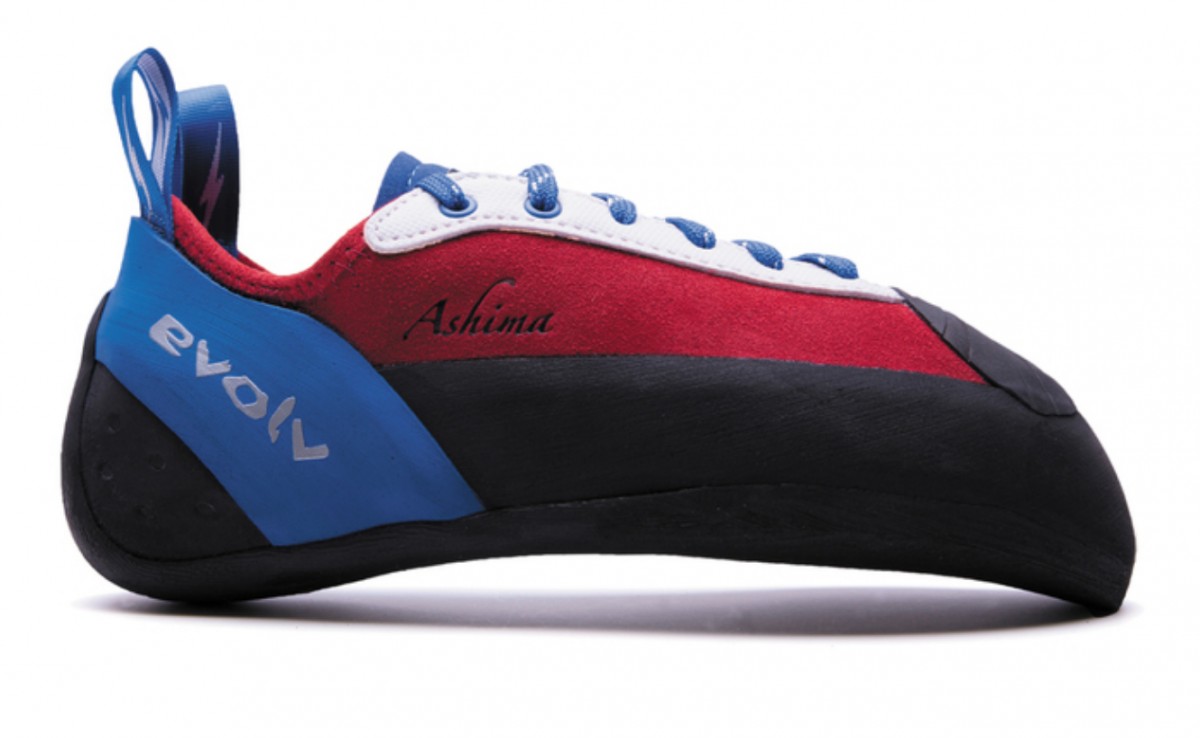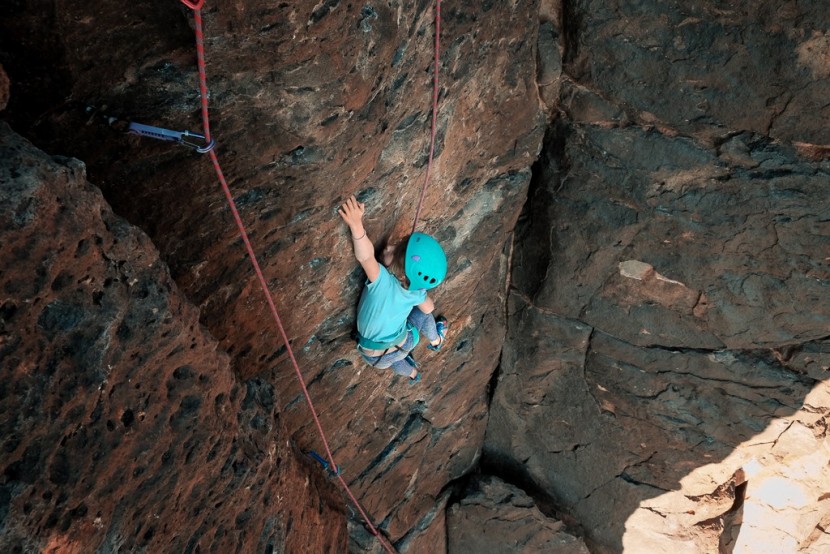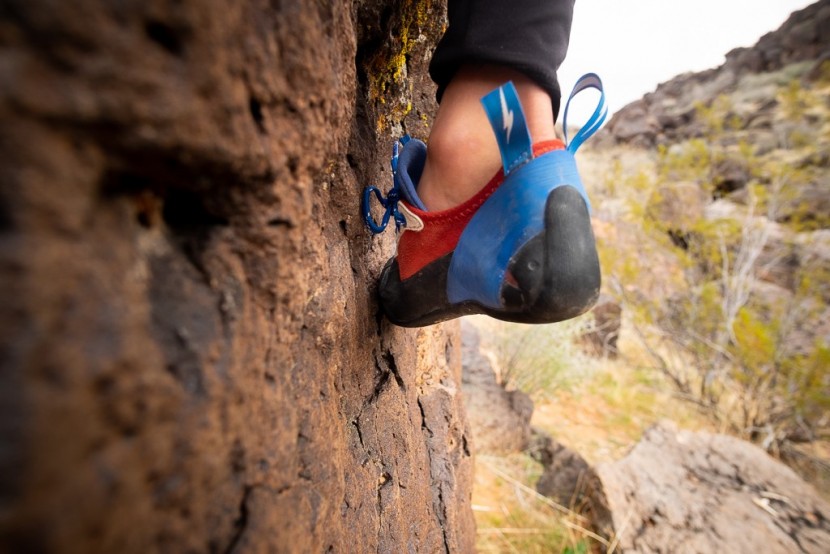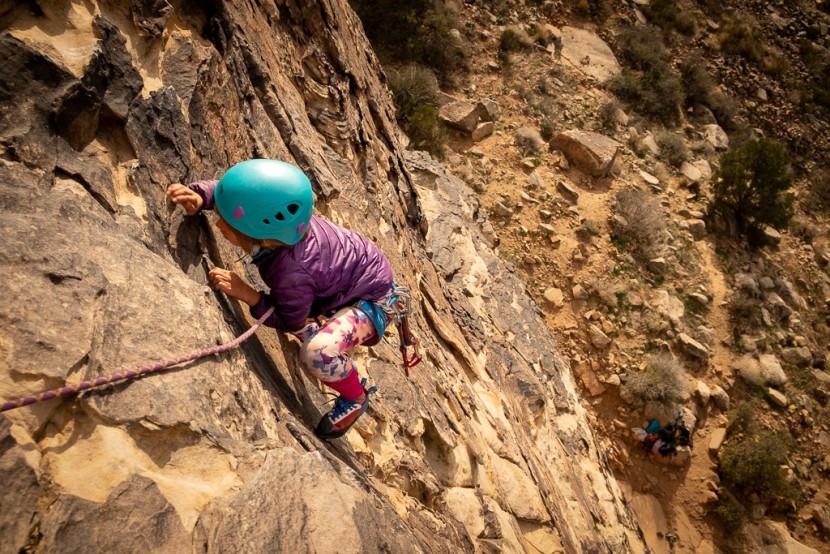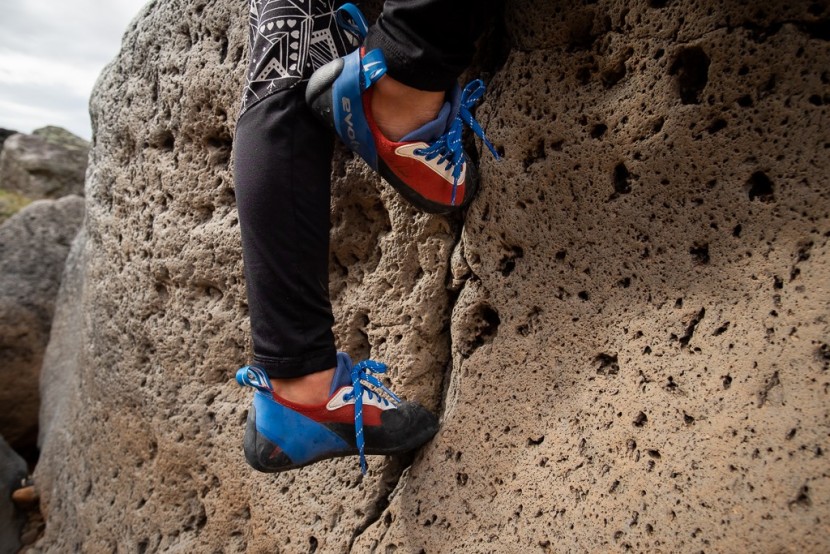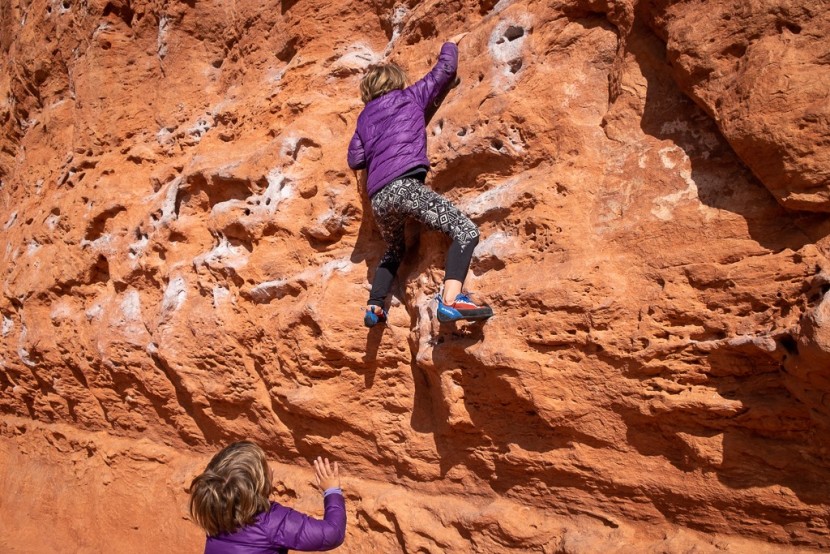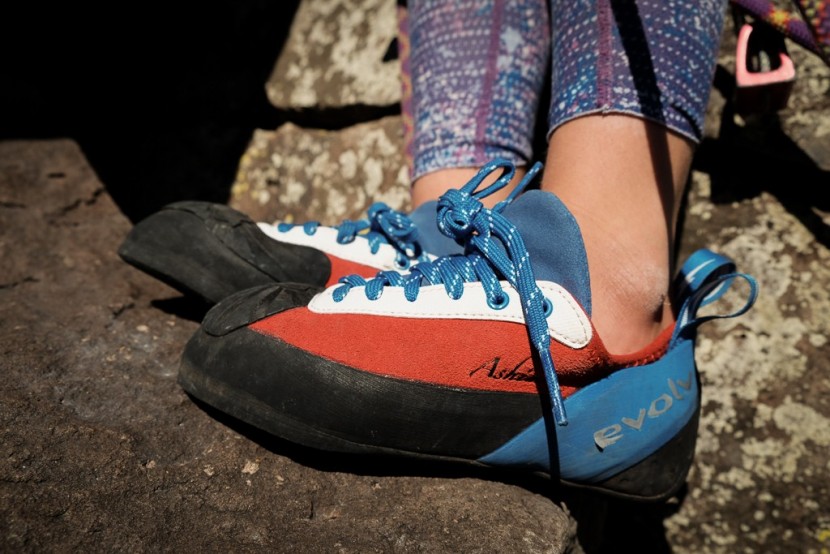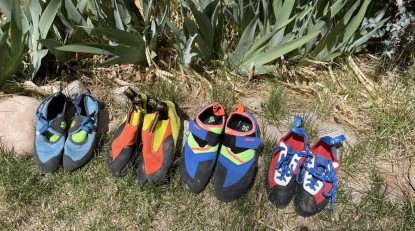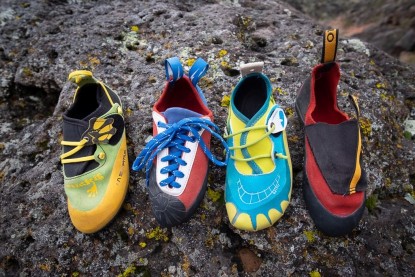Evolv Ashima Review
Our Verdict
Our Analysis and Test Results
Evolv has done an excellent job designing the Ashima. As such, it has some of the best performance available in a kids' climbing shoe. The toe is perfect for precise footwork, and the rubber rand excels when crack climbing or toe hooking, and also adds durability to the shoes. The laces are great for achieving a custom fit and the suede leather construction will make these shoes last long, while also softening over time. And while good looks aren't everything, this is certainly an attractive-looking shoe and if you look good, then you'll probably climb well too.
Performance Comparison
Edging
This shoe is certainly one of, if not the best, edging shoes that we tested. The slight downturn and relatively chiseled toe deliver precise footwork and confident edging. The heel rand transfers power through to the toe box. The laces allow strong young climbers to micro-adjust the shoe to the desired tightness.
The 4.2mm Trax rubber outsole has good friction and still has enough density to hold up to long-term use. The variable thickness rand (VTR) over the toes does a great job of standing up to a beating, even when a young climber may not have the most precise footwork yet.
Crack Climbing
The Ashima performs surprisingly well in cracks of most sizes. The VTR rand wraps up both sides of the shoe to help grip the sides of the crack, protecting the foot in hand size cracks. The suede leather upper is also thick enough to provide great protection for smaller feet, which is preferable when stuffing them into cracks.
The rand on the toe wraps up over the top of the foot to help get more protection and traction in smaller size cracks, while also adding durability and structure to the shoe. We wish that more manufacturers would take a tip from Evolv and offer rands that add durability to their shoes, especially shoes designed for beginners since they are the ones with bad footwork — which can wreak havoc on the toe rand of a climbing shoe. Of course, a down-turned, tight-fitting sport climbing shoe will never be as comfortable as a flat-lasted shoe while crack climbing. Since crack climbers tend to slip their flat feet into a crack prior to rotating the foot laterally to achieve good foot-jamming technique, a flat-lasted shoe is probably a better choice for extended crack climbing trips.
Pockets
Out of all the kids' shoes that we tested, the Ashima is the one that is most equipped for climbing steep pocketed routes, due to the downturned platform and a slightly stiff midsole that allows the power to be transferred to the foothold. The cupped heel is equipped with a rubber rand that reaches high enough to aid in heel hooking, which is always fun, whether you're a kid or an adult.
This shoe would benefit slightly if it had a more tapered/pointy toe box, but then it would also make for a less comfortable shoe. As is, this shoe does a great job sticking into most of those steep pockets in both vertical and overhanging terrain. If a trip to the steep sandstone of the Red River Gorge is in your future, then look no further than the Ashima.
Sensitivity
This shoe has a 4.2mm TRAX outsole. That may seem like a lot of sole to allow for much sensation through to the rock, but it doesn't have a midsole that would further inhibit sensitivity and therefore does pretty well in this metric.
If this shoe had any more sensitivity, it would suffer on other metrics like edging and pocket performance, but as it is, it makes a great all-around shoe with perfectly acceptable sensitivity.
Comfort
Most downturned performance shoes are made to fit on the tighter side and are not known for comfort. Since these are youth performance shoes, Evolv did their best to make them as forgiving as possible by eliminating the midsole and keeping the asymmetry, and aggressiveness to a minimum. A suede upper breathes well enough, but like many other colored leather climbing shoes, it does have a tendency to dye the foot red. The dual overlapping padded tongues are comfortable, and the lacing allows for a nice snug fit, though we wish the lacing went down another eyelet or two to help allow for a perfect adjustment.
However, when you compare the Ashima to the other kids' shoes, it has more adjustment than all of them due to the fact it's the only lace-up we tested in the category. While the lacing system is ideal for a precise fit, some parents might not like the time it takes for kids to lace the shoes up. If time is not a factor and patience is virtuous, then the laces won't be problematic and they sure allow you to dial the shoe in just right. For a child new to this type of downturned shoe, they may initially find them slightly uncomfortable, but after a little use, the shoes soften up and become more forgiving. Although the Ashima was made for higher performance, Evolv did everything possible to create a comfortable platform for young, growing feet.
Value
This shoe is priced much higher than most of the all-around kids' models that we tested, but for the added performance in a platform that works well for growing feet, we think they are worth the extra money. The VTR (variable thickness rand) rand does a great job of adding durability (and therefore value) to the shoes by making the rand thicker where they traditionally get more wear, like across the toes. This will keep the Ashima performing longer, which helps with the value of a higher-priced kid's shoe.
Conclusion
The new Evolv Ashima is a shoe for the specialist - a kid who is pushing his or her limits in the gym, crag, or boulder field. Those who are just out to climb casually might find them overkill and expensive, but to the climber who needs high performance, this shoe should fit the bill. The downturned La Sportiva Maverink slipper, with its no edge technology, is another great choice worth looking into if high performance is an important characteristic in a shoe.


